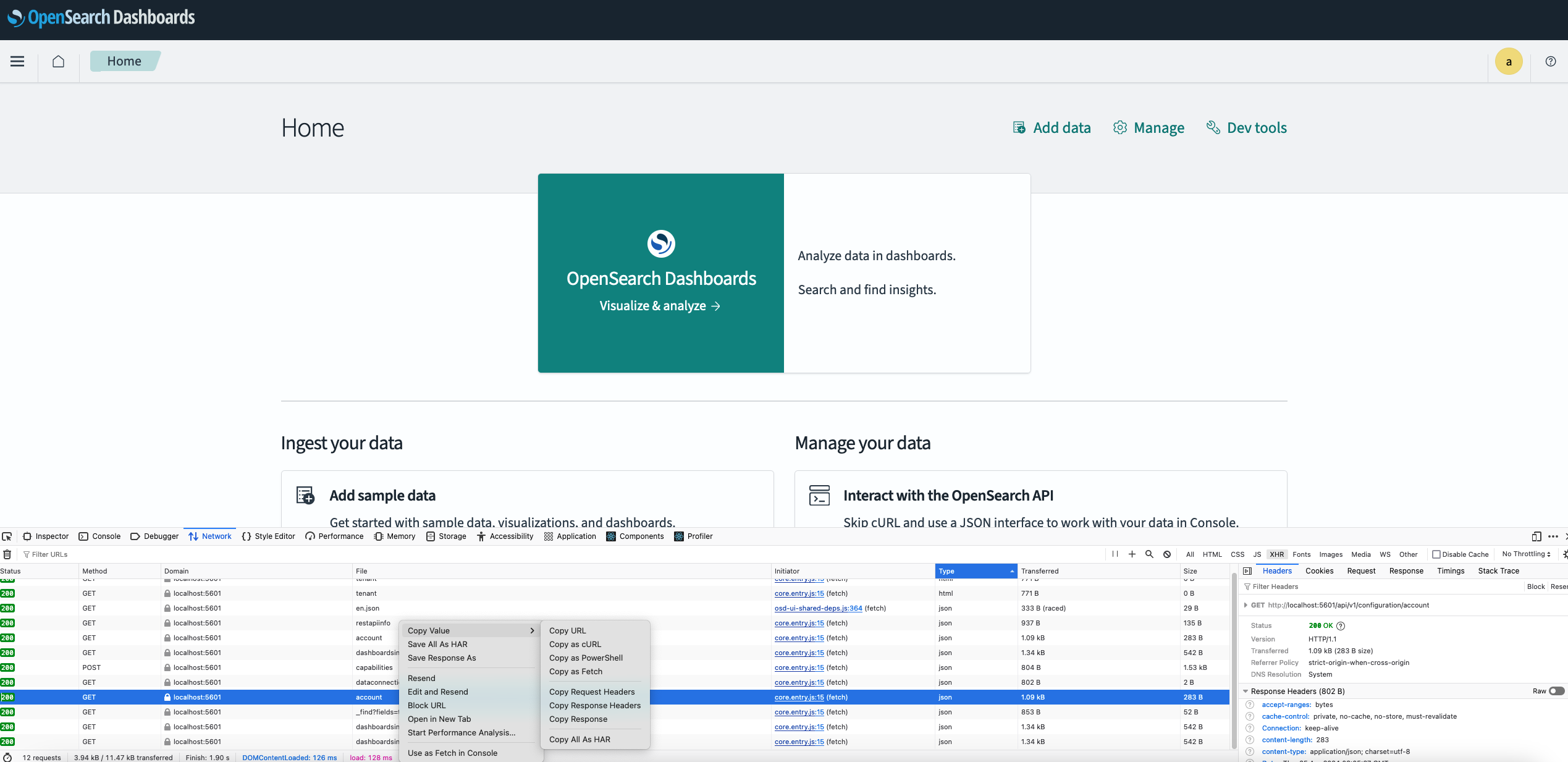You're viewing version 2.14 of the OpenSearch documentation. This version is no longer maintained. For the latest version, see the current documentation. For information about OpenSearch version maintenance, see Release Schedule and Maintenance Policy.
Configuring the CSP frame-ancestors directive dynamically
Introduced 2.13
Content Security Policy (CSP) is a security standard intended to prevent cross-site scripting (XSS), clickjacking, and other code injection attacks resulting from the launch of malicious content in the trusted webpage context. OpenSearch Dashboards supports configuring CSP rules in the opensearch_dashboards.yml file by using the csp.rules key. A change in the YAML file requires a server restart, which may interrupt service availability. You can, however, dynamically configure the frame-ancestors directive in the CSP rules through the applicationConfig plugin without restarting the server. Support for other directives is evaluated based on security ramifications.
Configuration
The applicationConfig plugin provides read and write APIs that allow OpenSearch Dashboards users to manage dynamic configurations as key-value pairs in an index. The cspHandler plugin registers a pre-response handler to HttpServiceSetup, which gets the frame-ancestors value from the dependent applicationConfig plugin and then rewrites it to the CSP header. Enable both plugins in your opensearch_dashboards.yml file to use this feature. The configuration is shown in the following example. Refer to cspHandler plugin for more information.
application_config.enabled: true
csp_handler.enabled: true
Enable site embedding for OpenSearch Dashboards
To enable site embedding for OpenSearch Dashboards, update the frame-ancestors directive in the CSP rules using cURL. When using cURL commands with single quotation marks in the data-raw parameter, escape them with a backslash (\). For example, use '\'' to represent '. The configuration is shown in the following example. Refer to applicationConfig plugin for more information.
curl '{osd endpoint}/api/appconfig/csp.rules.frame-ancestors' -X POST -H 'Accept: application/json' -H 'Content-Type: application/json' -H 'osd-xsrf: osd-fetch' -H 'Sec-Fetch-Dest: empty' --data-raw '{"newValue":"{new site}"}'
Delete frame-ancestors in the CSP rules
Use the following cURL command to delete frame-ancestors in the CSP rules:
curl '{osd endpoint}/api/appconfig/csp.rules.frame-ancestors' -X DELETE -H 'osd-xsrf: osd-fetch' -H 'Sec-Fetch-Dest: empty'
Get frame-ancestors in the CSP rules
Use the following cURL command to get frame-ancestors in the CSP rules:
curl '{osd endpoint}/api/appconfig/csp.rules.frame-ancestors'
Precedence
Dynamic configurations override YAML configurations, except for empty CSP rules. To prevent clickjacking, a frame-ancestors: self directive is automatically added to YAML-defined rules when necessary.
Fine-grained access control
When the Security plugin is enabled, only users with write permissions to the configuration index .opensearch_dashboards_config are able to call the mutating APIs. The API calls must have a valid cookie containing the security information. To construct the cURL command, you can use a Copy as cURL option from the network tab of a browser development tool. For GET APIs, you can find an existing GET XHR request with type json from the network tab, copy it as cURL, and then replace it with the appconfig API names. Similarly, for POST and DELETE APIs, you can find an existing POST XHR request and update the API name and the value of --data-raw accordingly. DELETE APIs must have their request method updated to -X DELETE.
An example of the Copy as cURL option in Firefox is shown in the following image.
